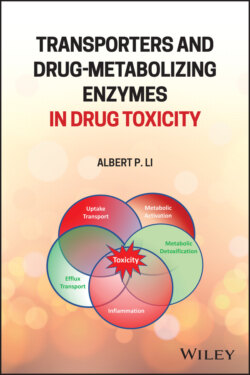Читать книгу Transporters and Drug-Metabolizing Enzymes in Drug Toxicity - Albert P. Li - Страница 78
3.9 Sorivudine
ОглавлениеSorivudine (SRV; 1‐beta‐D‐arabinofuranosyl‐E‐5‐[2‐bromovinyl] uracil) is a synthetic analog of thymidine intended as an antiviral drug for the treatment of varicellar zoster virus [160–162]. The antiviral activity of SRV is a result of its phosphorylation by thymidine kinase followed by incorporation into viral DNA, inhibiting DNA synthesis and thereby viral replication. SRV is also effective as an antiviral agent toward herpes simplex type 1 virus, and Epstein–Barr virus, and has been proposed as a potential treatment of viral outer retinal necrosis [163, 164]. SRV has high oral bioavailability and superior antiviral activity compared to the available antivirals at the time of its introduction [160, 165]. SRV was approved for marketing in Japan in 1993 and was withdrawn within 40 days of marketing due to its association with 23 cases of severe toxicity, leading to 15 deaths. The deaths and severe gastrointestinal toxicity were observed in cancer patients coadministered SRV and 5‐fluorouracil (5‐FU) prodrugs [166, 167]. Because of the severe toxicity associated with SRV, the drug did not receive regulatory approvals in any other countries, including the United States.
